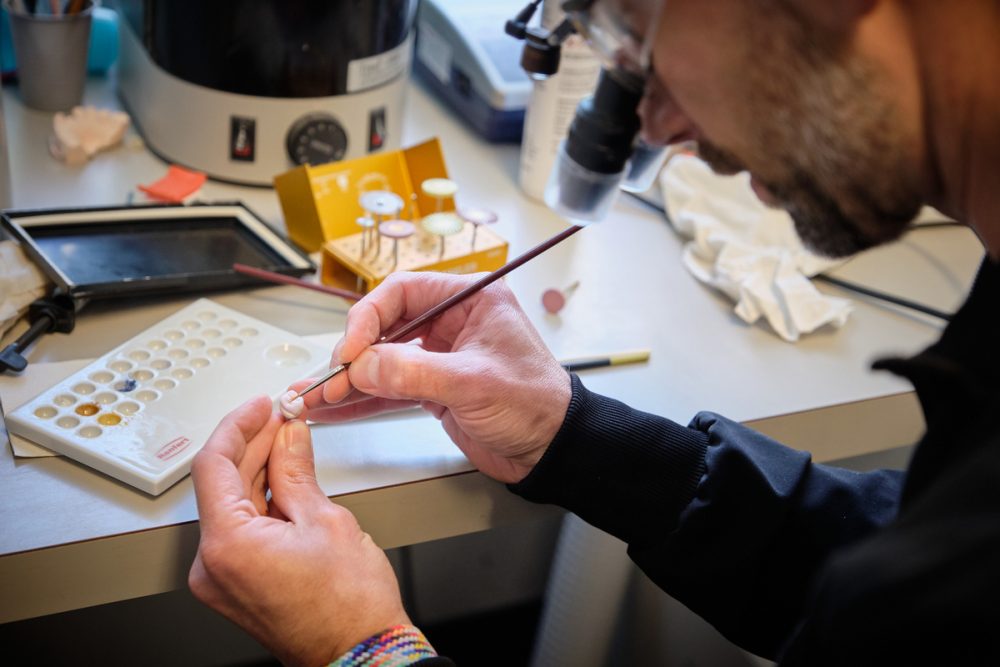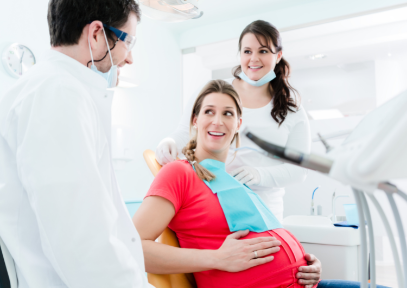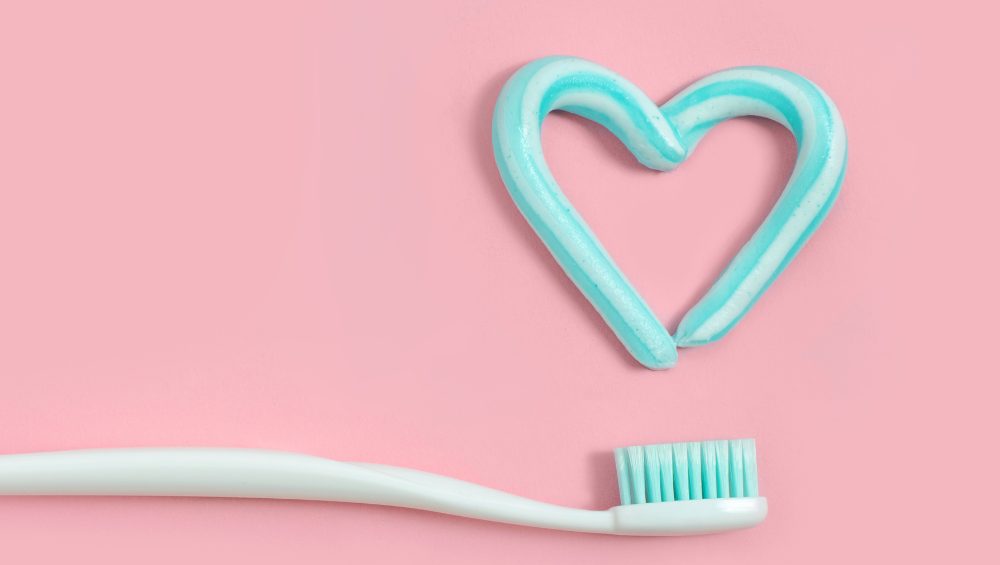
What Is A Dental Crown?
July 4, 2022
Is Teeth Whitening At The Dentist Safe?
August 16, 2022As dentists, we wish everyone would understand why dental care is important during pregnancy. Most people recognize that prenatal medical care is essential, but sadly, oral health is often overlooked.
Not only is it important to treat any oral health issues like gum disease or cavities during pregnancy, but it is also the right time to double down on consistent oral hygiene habits. Not only does this improve maternal oral health it also may reduce the risk of adverse pregnancy outcomes like premature birth and low birth weight.
In other words, oral health is important for both maternal health and the baby’s health. Poor oral health is linked with various risks, including preterm low birth rate, early pregnancy complications, and even early childhood caries or cavities.
We hope this article helps you make informed medical and dental decisions for yourself and your family and empowers you to take positive action.
It isn’t a substitute for personalized medical and dental care. Each pregnancy and each individual is different, and your doctor may recommend something different based on your risk factors, overall health, or medical history.
Why Pregnancy Requires Extra Attention to Oral Health
If you or a loved one is pregnant, this is an exciting time! We wish you a healthy pregnancy and birth. Part of a healthy pregnancy is maintaining oral health. According to the CDC, pregnancy may make people more vulnerable to gum disease and cavities.
Hormonal changes may intensify the body’s response to bacteria leading to gingivitis, periodontal disease, and more severe gum disease. In fact, the CDC reported that up to 75% of pregnant women might have or develop gingivitis.
If left untreated, swollen and, inflamed gums can lead to bone loss and even eventual tooth loss. The CDC also warns that gum disease, or periodontitis, is associated with poor pregnancy outcomes like low birth weight and even preterm birth.
The exact nature of the connection between periodontal infection and increased risk is not yet understood. In some ways, this is just like how the recognized connection between gum disease and heart disease is not clearly understood. The connection between oral health and overall health requires more research and investigation. Still, the connection is clear enough to indicate that dental care is important during pregnancy and throughout life.
Also, the environment within the mouth may change due to hormones, dietary changes, and even morning sickness. The mouth may become drier or more acidic, leading to a higher risk of tooth decay, developing an oral cavity, or other dental health problems.
The increased levels of pregnancy hormones, estrogen, and progesterone during pregnancy can also temporarily loosen the tissues that hold the teeth in place, potentially leading to loose teeth.
Pregnancy tumors are another oral health concern that occurs during pregnancy. You may be relieved to learn these tumors are not cancerous. They are lumps that appear between the teeth or on the gum line, often caused by bacteria and increased plaque. They are often painful and bleed easily.
Importance of Routine Dental Care and Hygiene for Your Teeth During Pregnancy
Pregnancy can be exhausting between getting ready for the baby’s arrival, prenatal visits, and life. Sometimes the exhaustion leads to neglecting daily oral hygiene. Given the risks associated with poor oral health, pregnancy is actually the right time to double down on maintaining consistent good oral hygiene habits.
During pregnancy, pay special attention to home dental hygiene. Be sure to do the following:
- Use a soft-bristled toothbrush to gently brush your teeth twice a day for at least two minutes to ensure time to clean each area of the mouth.
- Use fluoride toothpaste to help strengthen the tooth enamel.
- Gently floss daily to prevent bacteria from building up below the gumline.
- If you have morning sickness or nausea, resist the urge to brush immediately after vomiting. The acid makes the enamel in the teeth weaker. Instead, rinse the mouth with a diluted solution of one cup of water with a teaspoon of baking soda as recommended by the ADA.
- Eat a healthy, balanced diet.
- Limit consumption of acidic and sugary foods and drinks like coffee and soda.
- If you smoke, please quit! Most likely, your entire prenatal health team has already discussed this with you, but smoking is associated with increased risks to a developing fetus as well as your own oral health and overall health.
Preventative dental treatment like examinations and professional cleaning remain important to maternal oral health. The American Dental Association (ADA) recommends that patients continue seeing their dentists for oral exams and cleanings as recommended by their provider throughout pregnancy. One best practice is to schedule a cleaning during the first trimester for comfort and to start strong. This lets you learn the best techniques to ensure good maternal oral health.
Guidelines for Dental Care and Oral Health During Pregnancy
Both the American Dental Association (ADA) and the American College of Obstetricians and Gynecologists (ACOG) agree that emergency and essential treatments like root canals, extractions, or restorations are usually safe during pregnancy. Of course, your doctor may have different recommendations for a high-risk pregnancy or some existing medical issues. They recommend that non-essential elective invasive procedures wait until after delivery.
Talk with your doctor and dentist about your concerns if imaging is needed. According to the ADA, radiographs are considered safe at any stage during pregnancy when a shield is placed to protect the abdominal and thyroid areas. However, inform any medical or dental provider of your pregnancy and express your questions or concerns about any diagnostic procedure or treatment suggested.
Your Next Step to Improving Oral Health
If you are pregnant but haven’t seen a dentist, we urge you to schedule an oral health examination and cleaning. No matter how well you brush your teeth, you simply can’t safely remove built-up tartar at home. Professional cleaning is part of a good foundation for a healthy pregnancy.
At Southview Dentistry, we feel privileged that expecting parents in the Charlotte area trust their oral health to us. Contact us today to schedule your appointment.




